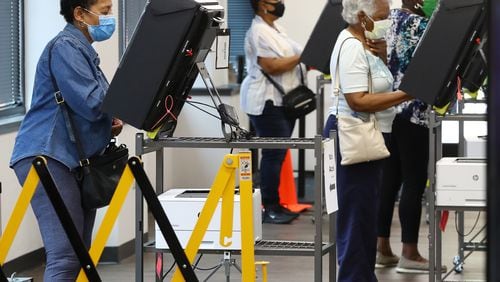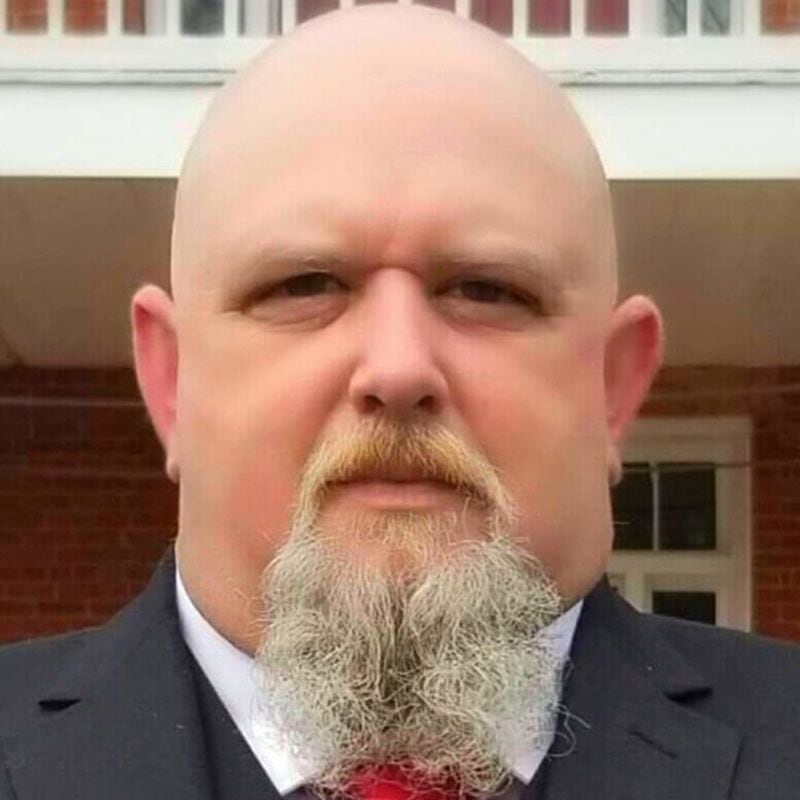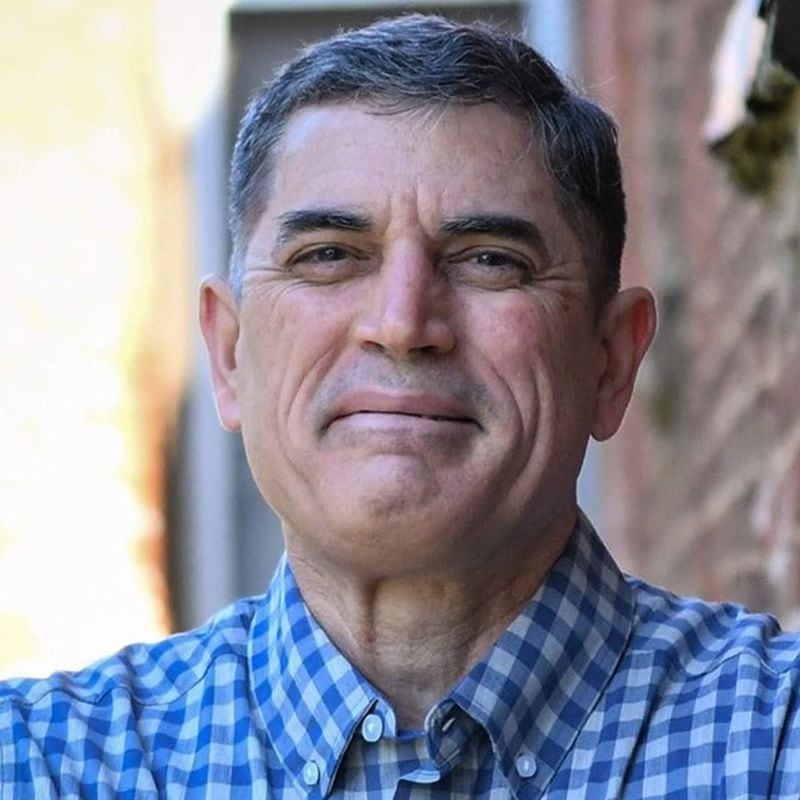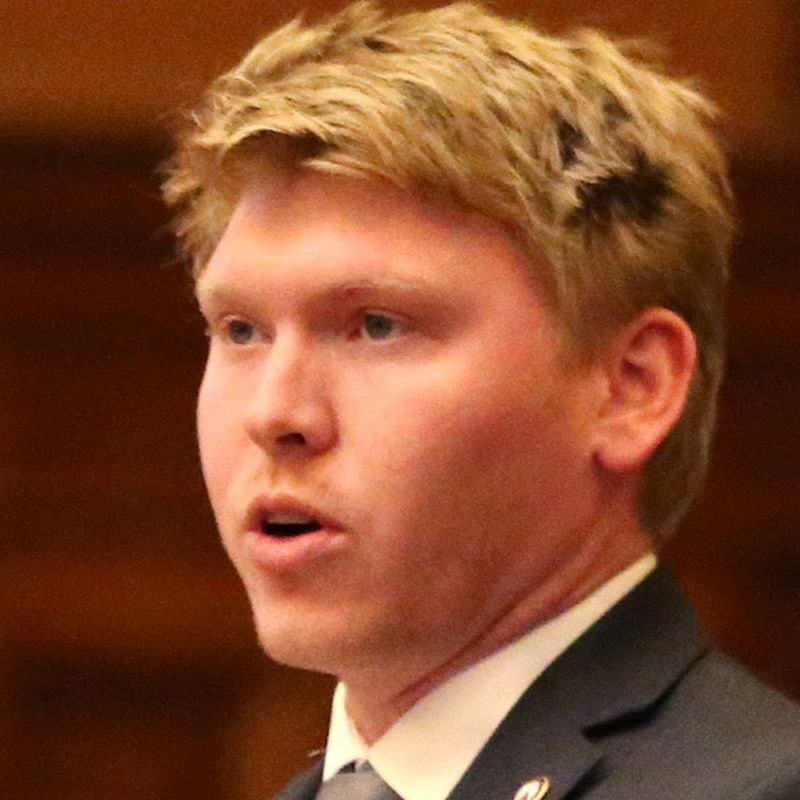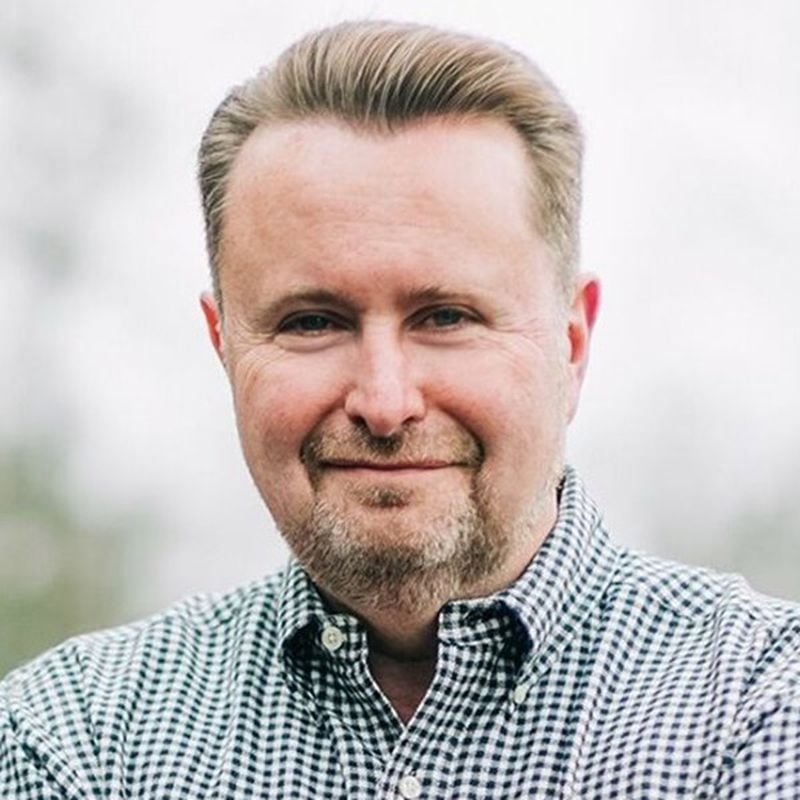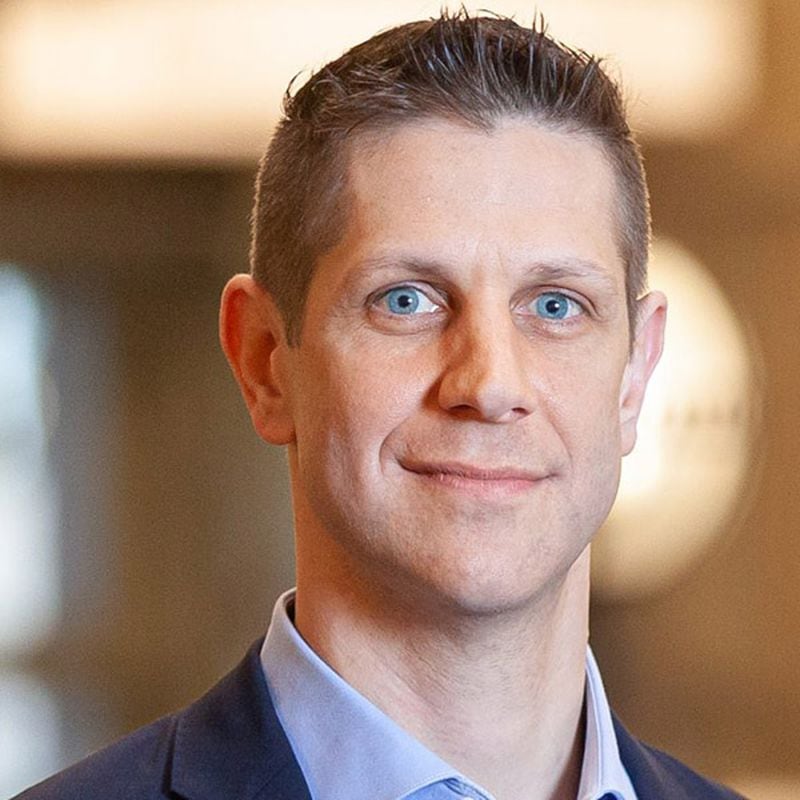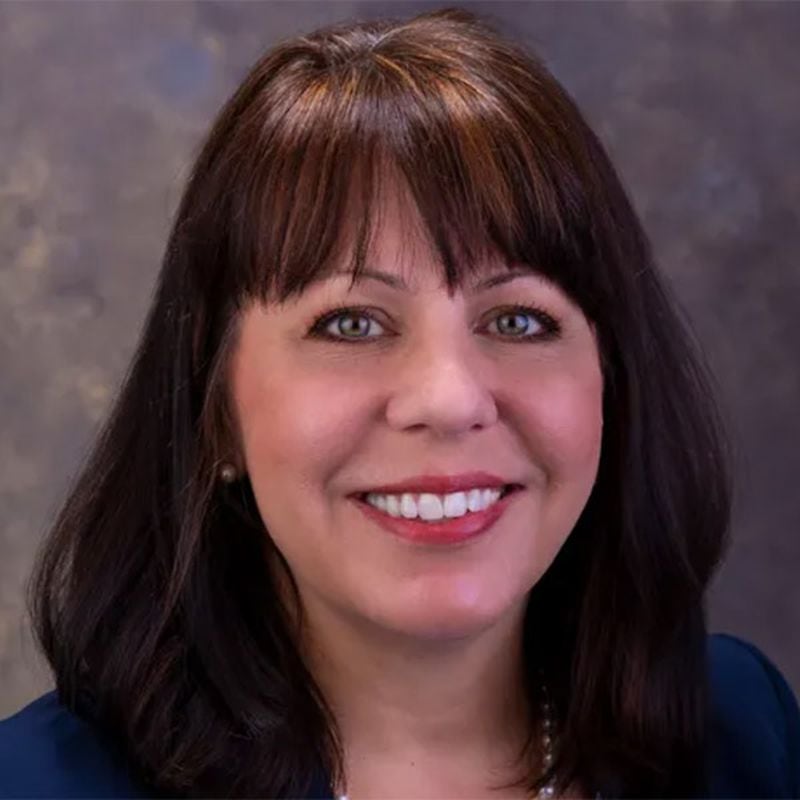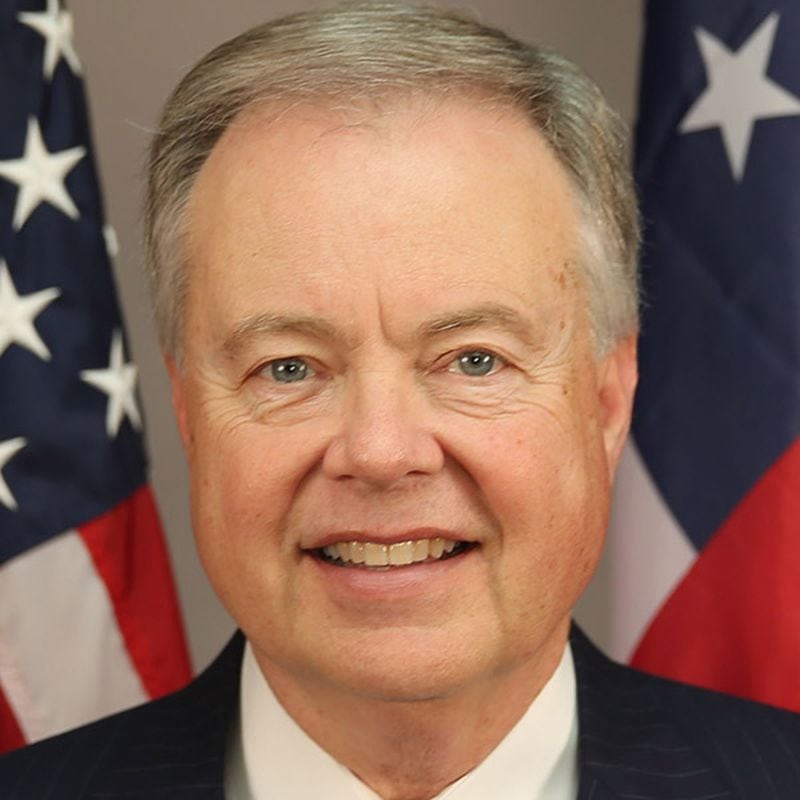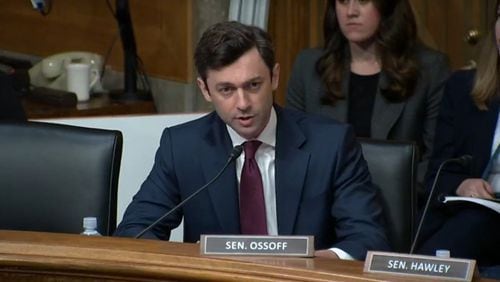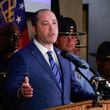A wide field of Republicans is campaigning for the seat U.S. Rep. Doug Collins vacated to run for the U.S. Senate.
The Atlanta Journal-Constitution sent questions to the candidates about five key issues. Here are the responses:
Michael Boggus, Commerce
Andrew Clyde, South Jackson County
Matt Gurtler, Tiger
Credit: Emily Haney
Credit: Emily Haney
Kevin Tanner, Dawsonville
Ethan Underwood, Cumming
Kellie Weeks, Lula
John K. Wilkinson, Toccoa
Credit: HANDOUT
Credit: HANDOUT
1. Do you support dismantling the Affordable Care Act? If so, what would you replace it with?
Boggus: Yes. It needs to be replaced by the private sector. We have far to much government in our lives now.
Clyde: I fully support repealing and replacing the Affordable Care Act. We must exchange Obamacare for free-market principles that will work to decrease health care costs and premiums. To give you an example, in my small business we have provided 100% company-funded health care for employees since 2007. In 2008, before Obama was elected, I was paying $92 a month for a very good health care plan with a very low deductible per employee. The average annual increase was between 4% and 6%. This was still above the rate of inflation, but it was manageable. Now, 11 years later I am paying just over $500 per employee and the plan is similar but not quite as good. At a 5% annual increase (still above inflation) my cost per employee should be $173.00 for 2020, but I am paying three times that amount and it has become unbearable.
Gurtler: We must repeal Obamacare and all other interventions in the free market. When the government took control of one-sixth of the economy the consequences were predictable, higher prices and lower quality. Allowing innovation and competition, unfettered by government bureaucrats and politicians with a dangerous socialist agenda, is how we will fix our broken health care system. This is a classic example of government creating a problem and pretending to offer a solution to the same problem. Insurance must be allowed to cross state lines, and regulations must be cut. Doctors and nurses shouldn't have to spend all their time on paperwork. The (Food and Drug Administration) has to stop it's detrimental overcontrol of medical innovation. Special interests need to get out of the way of the patient/medical work relationship.
>>Related: Where 9th District Democratic candidates stand on the issues
>> Related: Primary candidates for Georgia's 9th Congressional District meet in virtual debate
Tanner: Absolutely yes. The Affordable Care Act has been a disaster that has failed to deliver. Obamacare is yet another example of more government not being the answer. I commend President (Donald) Trump's efforts in dismantling Obamacare and succeeding in removing the individual mandate. This is a prime example of why we need a conservative that knows how to deliver on big issues. Moving forward, we need real conservative reform based in the private sector that reduces costs while ensuring access to care. We need to empower states to devise plans best for their state by giving Medicaid block grants. We need to expand association health plans and small business pools, end surprise medical billing, allow for more affordable individual plans, identify ways that make it more affordable for small businesses to offer insurance, get special interests out of the way and expand competition to reduce prescription drug costs.
Underwood: I support completely repealing the Affordable Care Act and replacing it with a plan that 1) requires portability of health insurance that is not tied to specific employers, 2) allows health insurance to be purchased across state lines,
3) requires health insurers to cover pre-existing conditions, 4) incentivizes Health Savings Accounts via tax credits, and 5) makes charges by health insurers and health care providers itemized and transparent. I will vehemently oppose a single-payer, government-run health care system and any system that eliminates private health care insurance.
Weeks: I support eliminating the ACA and getting the government out of health care.
Wilkinson: Yes. Take health coverage decisions away from the federal government and give more health options to individuals. The further decisions are made from the people, the more inefficient the decisions are. There needs to be less government control and more competition between insurance companies. Insurance companies should be allowed to cross state lines to compete. We need to spend less money on the bureaucracy and more money on medical care. We need to simplify medical coverage and spend the money on doctors and patients, not office personnel who spend all their time filling out reimbursement forms.
2. What should Congress do, if anything, to address concerns about climate change?
Boggus: More study. During the shutdown there was a great reduction of smog in Atlanta and other major cities.
Clyde: It is not the federal government's responsibility to regulate greenhouse gas emissions, or any aspect of our environment for that matter. The (Environmental Protection Agency) is an unconstitutional agency and should be dissolved. Climate change is fake news.
Gurtler: The federal government has a terrible track record when it comes to accountability and damage done to our beautiful mountains, lakes and rivers. States, local communities, conservative conservation groups and private landowners have a vested interest in maintaining our natural resources and are far better equipped to do so. Congress will do more harm than good, as it usually does, and the people, as well as our land, will be much better off applying the principles of a free market alongside personal responsibility.
Tanner: The radical left has created climate change hysteria to advance their socialist agenda and reshape America in a dangerous way. You do not have to look any further than the Green New Deal pushed by the socialist Squad in Congress. Their plans would cost this country trillions of dollars, send us off the financial cliff, shut our economy down and lead to massive unemployment and even regulate cow emissions. God has blessed this nation – and especially the 9th District – with unmatched natural resources. Many of us in North Georgia make a living off the land and with the resources God has given us, and we know how to be good stewards of it. We can protect our natural resources without the government and climate change hysteria.
Underwood: Like the COVID-19 models have overstated the impact of the pandemic, climate models have predicted far more warming than has actually been observed over the last 20 years. The U.S. is already surpassing the Kyoto Protocol, even though it is not a member of the Convention on Climate Change. To reduce carbon emissions, Congress should support the development of biomass and nuclear power plants. Congress should also reform statutes like the National Environmental Policy Act and the Endangered Species Act to create a more efficient permitting process for all energy projects, reducing costs and incentivizing competition between energy providers.
Weeks: Nothing.
Wilkinson: All decisions regarding climate change should be based on scientific fact and not a political party's agenda. There has to be a balance. We cannot base our decisions on fears and inaccurate research. As with all issues regarding our environment, we need our brightest minds doing our best research. Again, we have to base our decisions on scientific fact. We must be good stewards of our natural resources, but our decisions must be based on science and not fear.
3. Does Georgia have an illegal immigration problem and, if so, what should be done to fix it?
Boggus: Yes we do. We must first fix the judicial system that keeps letting immigrants get away with it
Clyde: Our country has an illegal immigration problem, not just Georgia. We need to protect our southern border by building a 30-foot wall along the border. As a Navy officer, I understand the national security risk that an open border creates. Additionally, we must stop demonizing (Immigration and Customs Enforcement) officers. We need to give them encouragement and praise for how they protect our country.
Gurtler: One of the biggest problems we face in terms of immigration is politicians not understanding that you can't have an expansive welfare state and weak border security at the same time. We need strong border security. States that have sanctuary cities and loose voting laws must be completely defunded as they put our rule of law and Constitution at risk.
Tanner: Illegal immigration is a tremendous problem that doesn't have geographic boundaries. In Georgia, I have helped pass numerous reforms to stem the tide of illegal immigration in our state as well as cracking down on those illegal immigrants who commit additional crimes. Ultimately this is a failure of the federal government, and it must be fixed at the federal level. When you cut off your arm, you have to stop the bleeding before you fix the arm. The same applies to illegal immigration. That's why the first step must be securing our border and shutting down the flow of illegal immigration. On day one in Congress, I will join President Trump in building the border wall, ensuring ICE has all the resources they need and ending federal funding for any sanctuary state or city.
Underwood: If any person is able to enter the U.S. illegally, it is a national security problem as well as a public health problem - we must know what foreign persons are in our country. I believe the U.S. should allow more people from foreign countries who want to work in the United States and have no criminal record, agree to be subject to our laws, and agree to pay taxes while here, to be able to acquire a green card or work visa for specific industries where staffing by resident aliens will not depress industry wages. Providing such visas will help to fill needed employment in the agricultural and technology industries, while preventing the issue of automatic birthright citizenship for children of green card and visa holders born while on American soil. At the same time, I welcome any person to become a citizen of our nation so long as they absolve any alliance to a foreign state, go through our immigration and nationalization process, learn English and American civics, embrace our American ideal of equal justice under law, and who want to work hard for economic opportunity, rather than depend upon welfare.
Weeks: We do have an illegal immigration problem. We have to secure our borders. We also need to shorten the process for people to come legally. If the process was easier and faster, people would do it the right way.
Wilkinson: Agriculture and agribusiness is the largest business in our state. For it to continue to grow and prosper, it must have a workforce. Finding workers for agriculture has become an increasingly serious challenge. During the past year, as chairman of the state Senate Agriculture and Consumer Affairs Committee, I chaired a study committee on farm labor. We traveled around the state and heard from stakeholders in the agriculture industry. Our hearings pointed out the need for a temporary worker program that allows workers to enter the country legally and to leave when their work is done. The process also needs to be more simple and user-friendly.
4. Are you in favor of additional criminal justice reforms that reduce the number of inmates in prisons and jails serving sentences for nonviolent offenses?
Boggus: Yes.
Clyde: I believe that criminal justice reform is necessary in the area of repeat offenders and illegal immigrants. We must protect our citizens by enforcing harsher sentences for those with a pattern of illegal behavior. Additionally, taxpayers should not be paying for the prosecution and jailing of illegal immigrants. Illegal aliens breaking the law should immediately be handed over to ICE, deported and barred from entering the country again or ever becoming a United States citizen.
Gurtler: I applaud President Trump for signing the First Step Act, which was a step in the right direction in terms of reforming our broken criminal justice system. In most instances prison and jail should be reserved for those who violate the life, liberty or property of peaceful individuals. When we see the elites like Hillary Clinton get away with violating the Constitution and not suffer any consequences, that undermines the rule of law. Let's let more peaceful individuals out of the system so they can be productive members of society and put and keep the real criminals behind bars.
Tanner: In Georgia, we have led the way in criminal justice reform. I was proud to lead on these measures with former Gov. Nathan Deal. Our commonsense efforts in Georgia have saved tax dollars and lives. I support President Trump's success in doing the same at the federal level. Having served on the front lines of law enforcement and run a law enforcement agency, I know that it is also important that we do not go too far and balance any reform policies with the safety of our citizens in mind. That's why I will support continued criminal justice reform efforts but will fight back against those who want to take it too far.
Underwood: I support reducing the number of incarcerated nonviolent offenders. I support occupational training, educational and substance abuse programs for inmates to help them learn job skills and to reduce recidivism. It is less expensive to help shape a future taxpaying citizen and give them hope for a future than to warehouse prisoners until they complete their sentences and release them with no way of supporting themselves.
Weeks: Yes. Far too many are in prison for minor offenses, and it ruins their lives.
Wilkinson: We should incarcerate the inmates who are a danger to society and not the ones we are mad at. It is too expensive and unproductive to keep inmates who are guilty of nonviolent crimes incarcerated for an extended period of time. They need a punishment appropriate for the crime committed and then they deserve the opportunity to be productive, taxpaying members of the community.
5. Should Congress do whatever it can to rebuild the economy no matter the long-term impact on the national debt?
Boggus: Congress should help fix the economy, not keep adding more debt
Clyde: I do believe Congress is trying to recover our economy. However, I believe that their philosophy is flawed. We should not add to the national debt. Prior to the pandemic, our economy was incredible. The prosperity that we have experienced over the past three years was not because government stepped in, it is because the government got out of the way. The government doesn't create jobs, Americans do. We need to encourage people to enter the marketplace by cutting taxes, resulting in the organic creation of jobs. The United States' economy is resilient because we are an exceptional people and there is great dignity in honest work.
Gurtler: One of the biggest, if not the biggest, threat we face as a country is a looming national debt. During my time as state representative I saw firsthand when career politicians didn't think twice about adding billions of dollars of new debt to Georgians. We must not allow ourselves to think that "the ends justify the means," but we must always follow the Constitution and conservative principles. That means a balanced budget, less taxes and supporting the free market. During COVID-19 we saw regulations and red tape eliminated to help the economy and save jobs, and those changes need to be kept and we need to continue eliminating government intervention into our lives, our families and our businesses. That's how we will have prosperity and freedom.
Tanner: As a small business owner, I understand firsthand the impacts this pandemic has had on businesses and which policies will help and won't. I support President Trump's response to the coronavirus pandemic, but the problem is the politicians in Congress, the bureaucrats and the special interests have added waste and inefficiencies to the packages which make them even costlier. Saying those same politicians and the bureaucrats can have a blank check ultimately wouldn't help our economy. We can no longer ignore our national debt. It is one of the biggest threats facing future generations. It's time to pass a balanced budget amendment to force Congress to balance their budget just like we do in Georgia and cutting waste and eliminating programs that do not work. With my experience in business, running a law enforcement agency, managing a county government and passing balanced budgets in the state House, I have the ability to get the job done.
Underwood: As with several of the other questions, there needs to be a healthy balance between the economy and the national debt. As a nation, we need to live on a budget. We cannot continue to thrive while our national debt continues to increase. It is not healthy for us to be in the debt of other countries to the extent we are now. In Georgia, we balance our budget every year and maintain a AAA bond rating. This saves our state millions of dollars in interest payments each year. Our economy will rebound, and we need to balance our budget. We do not have a revenue challenge, we have a spending challenge.
Weeks: No. We can't continue to put the burden of debt on future generations.
Wilkinson: No amount of debt or spending can replace the need for employment. Stopping people from working is what cratered the best economy with the lowest unemployment rate in 30 years, and only getting people back to work will rebuild the economy. Now is the time for Congress to finally cut spending and seek out fraud in the entitlements system. Federal budget cuts, coupled with new tax cuts, credits and deductions will leave more money in the pockets of families and rebuild the economy faster than any federal program.
About the Author

